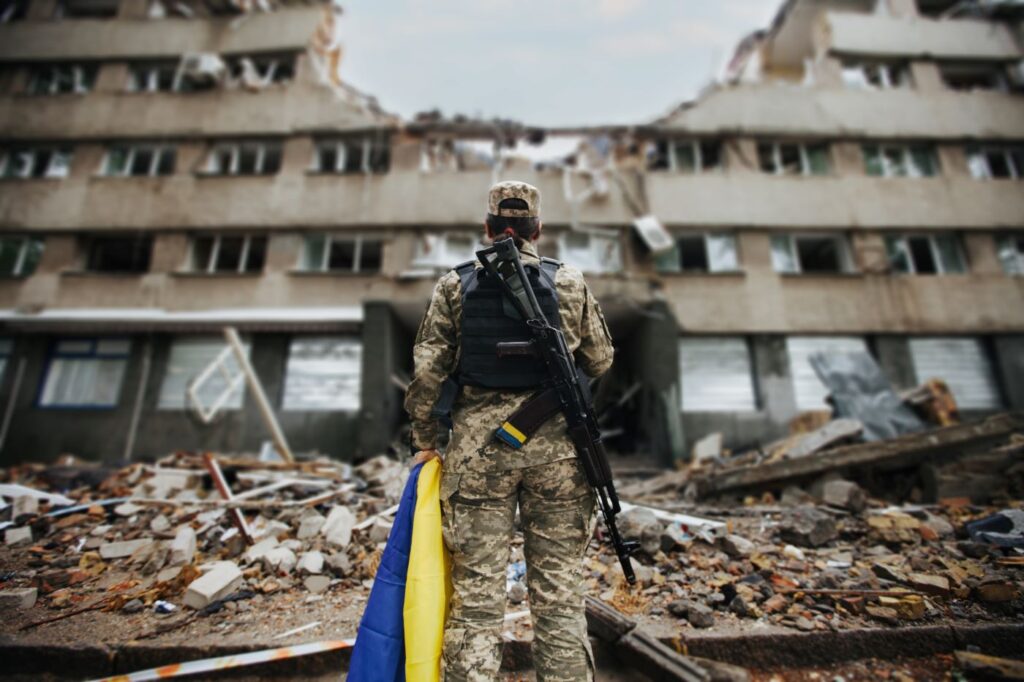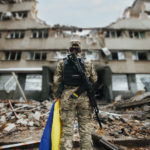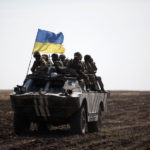The war in Ukraine, which began in 2014 and escalated in February 2022 with a large-scale Russian attack, is continuing. Ukrainian soldiers are slogging through layers of Russian defensive positions (the so-called “Surovikin line,” named after a Russian general who has already been sacked by Putin), slowly reconquering lost territories. With a few spectacular actions, Ukraine is also targeting Russian airbases and logistical hubs in Crimea, and deep inside Russia, with the goal of wearing down Putin’s military capabilities. This will be a long conflict. Both before the Russian invasion and as war has continued and taken its terrible toll, many analysts have asked whether Ukraine can win and, therefore, whether it ought to negotiate to trade land for peace.
The fact that Ukraine managed to arrest and then reverse the Russian attack last year is itself a great success, that undermines the recurrent pessimistic analyses of Ukrainian efforts. Nonetheless, the question of the possibility of Ukraine’s success or victory remains. And it raises the concurrent question of whether Ukraine’s defensive war is just. If success is in fact difficult, perhaps impossible, to achieve, can even a defensive war be just? Can Ukrainian military operations satisfy one of the principles of the just war tradition, namely that of “reasonable hope for success?”
The answer is yes for two reasons. Both “reasonable hope” and “success” are murky concepts, making this principle open to a wide spectrum of prudential interpretations. Moreover, both militarily and politically, Ukraine has already achieved success (survival), and its current operations can plausibly move toward a better long-term settlement.
Let’s examine these two points.
Start your day with Public Discourse
Sign up and get our daily essays sent straight to your inbox.Both “reasonable hope” and “success” are murky concepts, making this principle open to a wide spectrum of prudential interpretations.
A Reasonable Prospect: An Imperfect Equation
Ukraine’s military actions clearly satisfy the main principles of just cause (Ukraine is defending itself against a Russian invasion), right intention (Ukraine seeks to establish peace and keep its independence), legitimate authority (Ukrainian forces are commanded by a legitimate government with overwhelming national support), last resort (there was, and likely there is, no reasonable diplomatic solution given Russia’s demands and behavior), and proportionality (Ukrainian operations are limited to the frontline and to a few military targets beyond it). These principles are usually easy to adjudicate one way or another.
But the principle of “reasonable hope for success” or “serious prospects of success” is more difficult.
This is a relatively late addition to just war theory, suggested by the sixteenth-century Spanish thinker Francisco Suarez. He argued: “For a war to be just, the sovereign ought to be so sure of the degree of his power that he is morally certain of victory . . . otherwise, the prince would incur the evident peril of inflicting on his state losses greater than the advantages involved.”
It seems common sense to suggest that one should not engage in a war if there is no chance of winning. A decision to do so would condemn soldiers and civilians to risk their lives—and for many of them, to die—for no practical value. It would be a wanton sacrifice of life. Leaders should never waste their men’s lives pointlessly. Thus, even fighting in one’s own defense becomes imprudent if there is no reasonable path to success.
The problem with this principle, however, is that victory—or its impossibility—is never a mathematical outcome. Even a well-done analysis of the “correlation of forces” cannot predict the outcome of a battle with perfect certainty. Material superiority is not a guarantee of victory because too many other variables—from hard-to-measure national morale to Machiavelli’s fortuna and Clausewitz’s “friction” (“which distinguishes real war from war on paper”)—shape the outcome of a clash. As Clausewitz writes: “No other human activity is so continuously or universally bound up with chance. And through the element of chance, guesswork and luck come to play a great part in war.”
Suarez himself noted that this principle of “certitude” is not essential because certitude is “impossible” to attain. If this condition were perfectly implemented, “a weaker sovereign could never declare war upon a stronger.” But history clearly indicates that often states fight even “when [their] ability is somewhat doubtful.” The weak often fight, even by initiating an attack, against the stronger. Or, to put it in the context of a defensive war, an attacked state that is clearly weaker according to most metrics (GDP, size of the population, military power, leadership cohesion) should always surrender to a stronger one.
A “reasonable hope for success” measures a current action by the metric of the expectation of a future outcome, which is, by definition, uncertain. Hence, this principle of moral legitimacy relies heavily on the prudential judgment of the political leader in charge of the war or of the military commander in charge of a particular operation or theater of action. They have to do a net assessment of the enemy, consider the difficulties of defeating him, and evaluate the strengths and weaknesses of their own side.
Such assessments are extremely hard, often resulting in opposite conclusions. In Ukraine’s case, many Western analysts predicted that Kyiv would fall to Russian forces in February 2022. The Russian military was numerically superior, had greater firepower, and wielded more advanced technologies (and indeed continues to be numerically and materially superior to the Ukrainian armed forces). The Russians also held the initiative, including a bold airborne assault on the Hostomel Airport on the outskirts of Kyiv. The situation looked dire for Ukraine. There seemed to be no “reasonable hope of success” for the defense.
Expecting a collapse of the thin Ukrainian line, U.S. officials even offered to evacuate President Zelensky. In a riposte that has become a rallying call (similar to the more colorful reply of a Ukrainian soldier who defended Snake Island from a Russian naval assault), Zelensky allegedly retorted: “I need ammunition, not a ride.” The Ukrainian calculation, or perhaps just the instinctual response driven by the desire of national survival, was that success was possible. The cold analysts despaired, the men on the front decided to stand—very different assessments of how reasonable the chance of success was, and thus very different judgments of whether this principle of just war was satisfied. For the gloomy analysts, a Ukrainian decision to defend itself would have been unjust according to this principle, as there was little possibility of success and thus the loss of life would have been pointless. For Zelensky and his commanders, the decision to stand their ground was just, not only because of having just cause and right intent, but because it was in their judgment possible to blunt the Russian attack.
A “reasonable hope for success” measures a current action by the metric of the expectation of a future outcome, which is, by definition, uncertain. Hence, this principle of moral legitimacy relies heavily on the prudential judgment of the political leader in charge of the war or of the military commander in charge of a particular operation or theater of action.
The Malleable Definition of “Success”
The difficulty of defining a “reasonable hope” of success is further complicated by the malleable concept of “success” or victory. Tactical and operational considerations are by no means easy, but success is more tangible, immediate, and circumscribed—and thus easier to use as a metric. Establishing an overwatch position on a hill, clearing an enemy’s trench, sinking a ship in the rival’s base, or blocking an armored thrust: these are well-defined forms of success.
But in order for these actions to be justified, they have to fit into a larger plan: they have to be steps toward victory. Sherman’s March to the Sea contributed to the end of the Civil War; the enormous risk of D-Day was justified because it was one of the most efficient ways to bring Nazi Germany to unconditional surrender; the Battle of 73 Easting was part of the 1991 Desert Storm operation to expel Iraq from Kuwait.
The broad definition of victory is the imposition of one’s will on the enemy and the achievement of one’s goals. The challenge is that the larger goal, the vision of victory, is not always clear and it may change as the war progresses. It is often difficult to translate it into the specifics of a particular war. What is victory for Ukraine, for example? What would it mean for Ukraine to succeed? The answer is not entirely clear.
Undoubtedly, Ukraine’s minimal objective is to maintain sovereignty and be independent from Moscow. Were the government in Kyiv to fold and be co-opted by the Kremlin, Ukraine might maintain territorial integrity but without political independence, turning into a Russian vassal. The maximalist goal is to restore Ukraine’s full territorial integrity to the pre-2014 borders, pushing Russian forces out of eastern oblasts as well as out of Crimea, both illegally occupied. In either case, Ukraine’s success will require retaking control over the Sea of Azov by reestablishing presence on its littoral (e.g., Mariupol) and access to it through the Kerch Strait (over which the Russians built a bridge already targeted at least twice by Ukraine). This is a high task that will require time and will cost lives and resources, but Ukraine can plausibly achieve it.
There is then the related question of what Ukraine’s vision of victory entails in terms of Russia and its forces. That is, what does Ukraine need to do to Russia in order to win? Russian forces in Ukraine have to be defeated, perhaps even to the point of collapse and tactical irrelevance (akin to what the Ukrainians did around the city of Bakhmut to the Wagner Group, the paramilitary organization used by Putin for operations in Africa, Syria, and Ukraine). But for some, for Ukraine to succeed in the long term there has to be a fundamental change in Russia itself: Putin has to be dethroned, and Russia has to be considerably weakened even to the point of falling apart.
More can be said about what Ukraine’s victory should look like, but the point is that there is a significant debate on the subject. When it comes to evaluating a war according to the principle of “reasonable success,” it is exceedingly difficult to do so because the very term “success” is ambiguous.
Finally, in the most extreme case, there may be value in fighting a war that will result in defeat. The casualties and suffering would be incurred knowing that victory was impossible, seemingly violating the principle of “hope of reasonable success,” but often there is value in losing while fighting. For instance, an impossible defense could improve the position of that country or nation in a future settlement. Arguably, the September 1939 defensive campaign of Poland against Germany resulted in a massive defeat, but it conveyed to the rest of the world that Poland was a victim deserving a spot at the negotiating table when (or even if) there was a postwar settlement. That is, a nation can fight a clearly losing war not for battlefield success but for the right to sit at the negotiating table at some later moment, and for the purpose of keeping national honor and identity alive. The war may be a lost cause, but the future is not.
The war in Ukraine is tragically costly to the Ukrainian nation. And success has not been, and will not be, within easy reach for Kyiv. But there is no reason to think that this defensive war does not satisfy the principles of just war tradition, and, in particular, the complicated principle of reasonable success.
Image by “alimyakubov” and licensed via Adobe Stock. Image resized.














